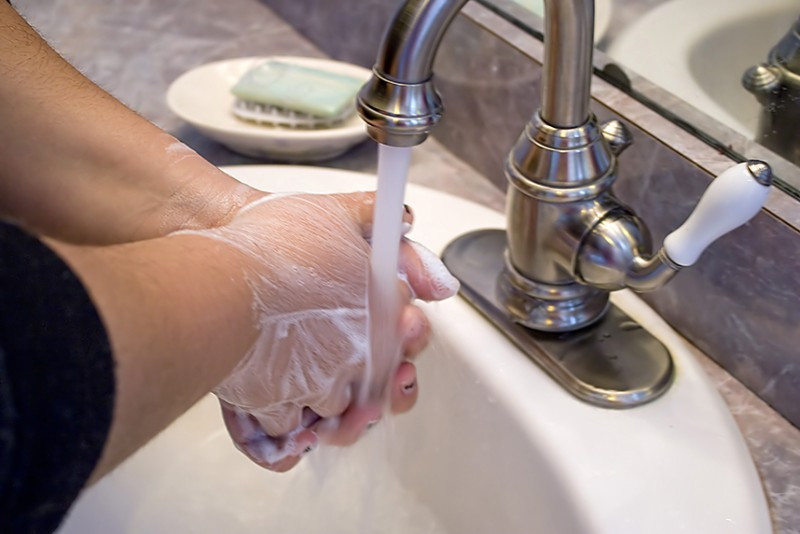How many times have you been in a public rest room and noticed others who depart after doing their business without stopping to wash their hands? Disgusting, isn't it? What's even more disgusting is if it's you that's the guilty culprit, in such a hurry to leave that you can't stop for 30 seconds to clean your hands. Maybe that turns out to be the one time that meant catching a cold or coming down with the flu through germs transference. Monday, December 4 marks the start of Handwashing Awareness Week. It begins with a commitment for each of us to do our part to keep our hands clean, all the time, no exceptions. Before, during and after food preparation. Before and after caring for a sick person—each time you go in there. Every time after using the toilet, after changing diapers, after blowing your nose, after touching an animal or your pet's feces (inadvertently), or after touching garbage. Besides, it's cold and flu season. That's just scratching the surface, which brings us to scratching your nose or your mouth, or rubbing your eyes. In each case, it's time to wash your hands, and to be thorough about it. Yes, it's tedious and tempting to skip in a hurry-up world, but think of it as a germ-wary version of Russian roulette—one in which skipped handwashing maybe leaves you with a case of diarrhea. The Centers for Disease Control and Prevention (CDC) suggests a five-step process for cleaning your hands: 1. Wet your hands with clean, running water (warm or cold), turn off the tap, and apply soap. 2. Lather your hands by rubbing them together with the soap. Be sure to lather the backs of your hands, between your fingers, and under your nails. 3. Scrub your hands for at least 20 seconds. Need a timer? Hum the "Happy Birthday" song twice from beginning to end. 4. Rinse your hands well under clean, running water. 5. Dry your hands using a clean towel or air dry them. Webmd.com offers a suggestion that could be a sixth step. If at all practical, after rinsing your hands, use a paper towel or your elbow (assuming you have long sleeves) to turn off the faucet. Of course, there will be many occasions when you are nowhere near a sink and soap and you've just sneezed or touched a surface you suspect to be filled with germs. That's reason enough to have an alcohol-based hand sanitizer on you, one that contains at least 60 percent alcohol. Such sanitizers can reduce the number of germs on your hands, but they can't eliminate all types of germs. In such a case, hit the rest room next chance you get. A quick note about using soap—Mayo Clinic discourages use of antibacterial soaps, saying they are no more effective than regular soap in killing germs. Antibacterial soap could also help create bacteria resistant to the soap's antimicrobial agents, making it harder in the future to kill the same germs. The CDC has a good way of getting the message across—think of handwashing as a do-it-yourself vaccine, free of charge. Just wet, lather scrub, rinse and dry. The whole purpose of handwashing is simple: it's to remove germs, to avoid getting sick and to prevent the spread of germs to others (the Golden Rule of proper hygiene—hopefully, the sentiment is mutual everywhere we go—dream on). For good measure, here are several other occasions in which the time is right to clean up, per Mayo Clinic:
- When inserting or removing contact lenses
- After working with household or garden chemicals
- While treating wounds
- After shaking hands with others

